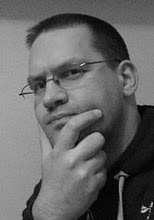 Winterval - you might have heard of it. It caused a bit of a furore a few years back.
Winterval - you might have heard of it. It caused a bit of a furore a few years back.In fact, it all started in 1997 when Mike Chubb was working for Birmingham city council during the rejuvenation of the city centre. As the council's head of events he and his team were charged with creating a marketing strategy to cover:
"41 days and nights of activity that ranged from BBC Children in Need, to the Christmas Lights Switch On, to a Frankfurt Christmas Market, outdoor ice rink, Aston Hall by Candlelight, Diwali, shopping at Christmas, world class theatre and arts plus, of course, New Year's Eve with its massive 100,000 audience."
Chubb realised that with so many events competing for visitors, marketing them as individual occasions would be expensive, time-consuming and ineffective in acquiring sponsorship or funding. What the events needed, he decided, was a "generic banner under which they could all sit". His team settled on 'Winterval' – a portmanteau of 'winter' and 'festival'.
Little did he or anyone else on the events team realise that this name was to found one of the most persistent urban myths of modern times, and that 11 years later he would be writing an article explaining – again – what the event was and how it was never about renaming or banning Christmas.

"41 days and nights of activity that ranged from BBC Children in Need, to the Christmas Lights Switch On, to a Frankfurt Christmas Market, outdoor ice rink, Aston Hall by Candlelight, Diwali, shopping at Christmas, world class theatre and arts plus, of course, New Year's Eve with its massive 100,000 audience."
Chubb realised that with so many events competing for visitors, marketing them as individual occasions would be expensive, time-consuming and ineffective in acquiring sponsorship or funding. What the events needed, he decided, was a "generic banner under which they could all sit". His team settled on 'Winterval' – a portmanteau of 'winter' and 'festival'.
Little did he or anyone else on the events team realise that this name was to found one of the most persistent urban myths of modern times, and that 11 years later he would be writing an article explaining – again – what the event was and how it was never about renaming or banning Christmas.
To read more about this story, click here.

Of course, W is also for Wassail. The word 'wassail' comes from the Old English 'waes hael' meaning 'be healthy', but came to denote the practice of travelling from house to house, demanding food and drink in return for a few verses of whatever carol the singers could remember at the time.
Did you know...?
The expression 'to drink a toast' originates with the custom of wassailing?
Today you can enjoy English Heritage's own Wassail Ale and hear a traditional wassailing song as sung by the popular Britpop band Blur!
* * * *
You will find many other such tasty morsels of information in my book What is Myrrh Anyway?- and its American counterpart Christmas Miscellany: Everything You Always Wanted to Know About Christmas.
















0 comments:
Post a Comment